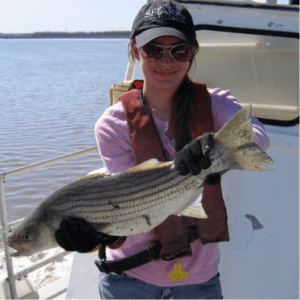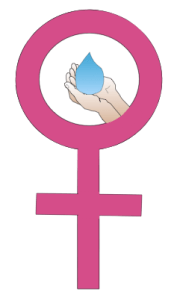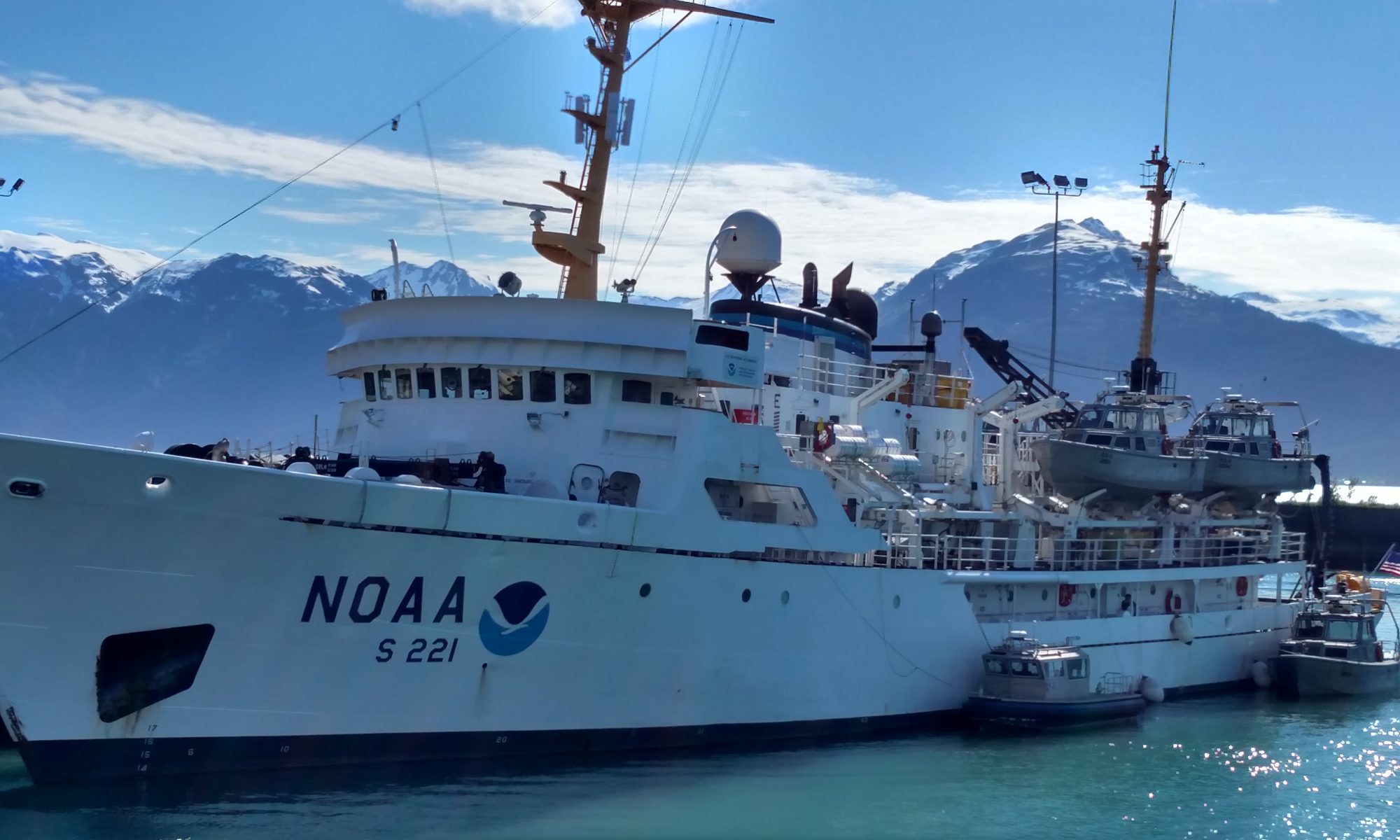Another five ladies who work with and in our H2O world!
Sara Grady

Job Title:
Watershed Ecologist and South Shore Regional Coordinator
Massachusetts Bays Program
What She does:
A mix of research, outreach, and management, all to help local coastal communities understand, protect, and restore their watersheds.
Favorite Aspect of job:
It’s a tie between getting out in the field (especially salt marshes and mudflats) and the relationships I’ve formed with town staff and citizens
What type of schooling/experience do you think best set you up for this job:
While I learned the basics of doing research and presenting it properly and clearly while working on my Ph.D., the interaction aspect came through my actual field work. I studied horseshoe crabs on the Cape, and as part of that I spent quality time with the natural resource staff of some of the towns as well as some crab fishermen. It made me realize that I wanted to do something where I helped the local coastal folks in a direct way with my research and outreach. I also spent a few summers as an undergraduate working at the watershed association that hosts my position, so that experience helped me find the sort of community I wanted to participate in.
Helena Reinardy
- Postdoctoral Researcher- Helena Reinardy
Job Title:
Post-doctoral Scientist in the Molecular Biology Lab
Bermuda Institute of Ocean Sciences
What She does:
Developing molecular and genetic techniques for investigating DNA repair mechanisms and trying to understand how capable sea urchins are in repairing damaged DNA. More broadly speaking, I am interested in understanding how organisms are affected by environmental stressors such as chemical pollutants, and the mechanisms they have for dealing with them at all levels of biological organisation (genetics, molecular and cellular, physiology, behaviour, and reproduction).
Favorite Aspect of job:
the variety of the work. The work requires so many different things: working in the lab, running experiments, collecting samples from the sea, designing experiments, researching previous work, writing manuscripts, teaching students, and communicating and collaborating with other researchers all over the world.
What type of schooling/experience do you think best set you up for this job:
Getting as much experience of all the aspects of research as was possible. I worked in labs during my holidays as an undergraduate, I have moved around and been able to gain experience from many different scientist with different skills and perspectives, and my PhD was invaluable training in being a self-sufficient all-round science researcher.
Rachel Parsons

Research Specialist and Laboratory Manager of the Microbial Observatory
Bermuda Institute of Ocean SciencesWhat She does:
Microbial Oceanography: quantify and qualify the microbes in the ocean – viruses, bacteria and archaea. These microscopic organisms are responsible for using dissolved organic carbon (~40%) in the ocean and re-introducing it back into the food web and oceanic carbon cycle. Autotrophs or plant microbes along with phytoplankton contribute to 45% of the world’s oxygen – basically every other breath that you breathe comes from the ocean. She uses microscopy and molecular techniques to identify specific microbes in the ocean in order to better understand what microbes have adapted in specific ocean depths and why they have made these adaptations.
Favorite Aspect of job:
Teaching students the microscopy and molecular techniques and assisting them in looking at a variety of ecosystems including microbes associated with corals and sponges; those that adapt to a seasonally anoxic marine sound and those that can be used to trace sewage pollution.
What type of schooling/experience do you think best set you up for this job:
A strong mathematics and chemistry background in high school is essential. Being able to do chemical calculations in my head really speeds up many protocols and having a great grounding in these subjects ensures that mistakes are caught in time! Strong writing skills and knowledge of grammar have also been useful when writing scientific papers.
Katie May Lauman

Job Title:
Ph.D. Candidate, College of William and Mary, Virginia Institute of Marine Science, Department of Fisheries Science
What She does:
Katie May is working with other scientists at the Virginia Institute of Marine Science studying sturgeon phylogenetics. There are 25 species of sturgeons, all of which are imperiled due to demand for their meat and caviar, as well as habitat destruction. These species are culturally and economically important to many communities, including Native American and First Nations groups. In order to effectively protect sturgeons, it is important to understand their biology and phylogenetic relationships (how different species are related to one another).
Katie May extracts and sequences mitochondrial DNA from sturgeons, and uses this information to construct phylogenies that help elucidate evolutionary relationships among sturgeon species. She also studies the development of sturgeons during the larval stage to better understand how behavior is linked to morphological development. This aspect of her research requires her to clear and stain hatchery-raised larval sturgeon specimens- a process that turns soft tissue clear, bone red, and cartilage blue. She then dissects the stained specimens- they can be as small as 10mm. Conducting these dissections is a delicate process, which requires use of a microscope- for example, she uses tools such as insect pins to carefully separate the jaws of larval specimens so that she can examine tooth and jaw bone development. Once dissections are complete, she compares her findings to behavioral developmental information documented by other researchers.
Katie May also participates, with her lab and the VIMS ichthyology course (taught by Dr. Eric Hilton), in an annual fish-collecting trip in the southern Appalachians.
Favorite Aspect of job:
Katie May most enjoys dissecting larval sturgeon specimens and finding links between the timing of morphological and behavioral changes. This aspect of her work is extremely interesting because sturgeons undergo very dramatic shifts during the larval stage. For example, they hatch with terminal, forward facing jaws. During the larval stage, the jaws slowly shift until they are ventrally positioned and protrusible- meaning they can extend their mouth away from their body to suction prey from the benthos. Also interesting is the fact that sturgeons hatch without teeth, develop teeth during the larval stage, and then lose these teeth before they are fully mature.
What type of schooling/experience do you think best set you up for this job:
Katie May earned her B.S. in Biology at Southampton College of Long Island University. She then earned an M.A. in Conservation Biology at Columbia University. While at Columbia, she interned at the Blue Ocean Institute, a non-profit organization where she helped develop Seafood Sustainability cards. She also interned and volunteered at the American Museum of Natural History, working on a molecular coral reef project. Before returning to school to pursue her PhD, she worked in the grant-writing department at Rainforest Alliance, an organization dedicated to biodiversity conservation and sustainable livelihoods. The best advice she can give anyone interested in pursuing science is to take advantage of internship opportunities- especially those involving lab or field work.
Yosra Khammeri

Job Title:
PhD student,
National Institute for Sciences and Technology of the Sea,
National Institute of Agronomy of Tunisia,
Regional Scientific Coordinator NF-POGO Alumni Network for Oceans (NANO), Africa region,
What She does:
I had the opportunity to benefit from a joint fellowship from the Nippon Foundation (NF) and the Partnership for Observation of the Global Ocean (POGO) to follow a training programme at the Bermuda institute of Ocean Sciences (BIOS). I was particularly interested by the work addressing the impact of Saharan dust deposit on phytoplankton growth. At this stage, I was also involved in using flow cytometry to investigate at the single cell level, the response of phytoplankton to atmospheric dust deposit.
I found this approach very appealing to address the impact of Saharan dust deposit on phytoplankton development in the gulf of Gabès, Tunisia, and integrate it in my PhD project which is “High frequency observation of phytoplankton assemblages with automated flow cytometry, response to pulsed events”.
Favorite Aspect of job:
As a scientific coordinator for NANO Africa, I will be able to participate in promoting global oceanography and particularly implementing international and integrated global ocean observing systems.
My PhD project will address several priority areas: fixed point time-series observations, emerging technologies (automated in situ flow cytometry) for ocean observation, data management and coastal observation.
What type of schooling/experience do you think best set you up for this job:
Working hard and passionately contributes to the capacity building of my country by applying my skills and transferring my knowledge to other Tunisian scientists. I am proud that Tunisia will become the second country after France to deploy an instrumented buoy including an automated flow cytometer, thus contributing to the cornerstone of a future Mediterranean network of similar observation buoys. Always be motivated, make connections, and be sure that you love what you do. Oceanography is not an easy field so having the support of your family and friends is also very important!
Stay Tuned for the next set of ladies!!




Love this series! Will share it through our wH2O: The Journal of Gender & Water at the University of Pennsylvania. Let us know if you ever want to cross-post / promote blogs or if anybody would like to submit papers, essays or join our editorial board!